The Making of an Entrepreneur
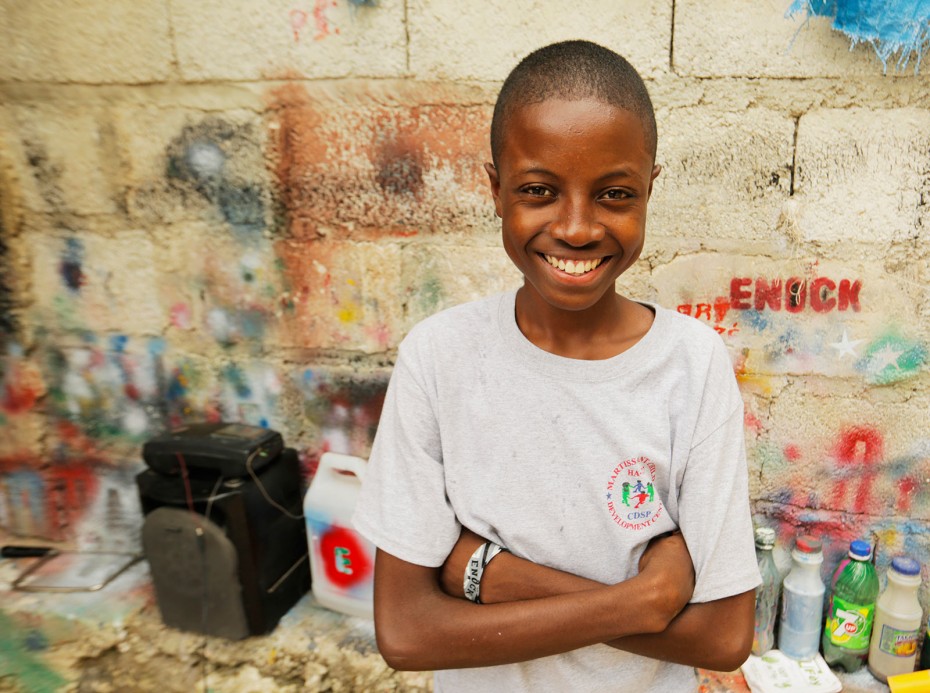
When a teenage entrepreneur is given the right opportunities to develop, his microenterprise changes the futures of both his family and his community.
Continue Reading ›You’re Never Too Old to Learn
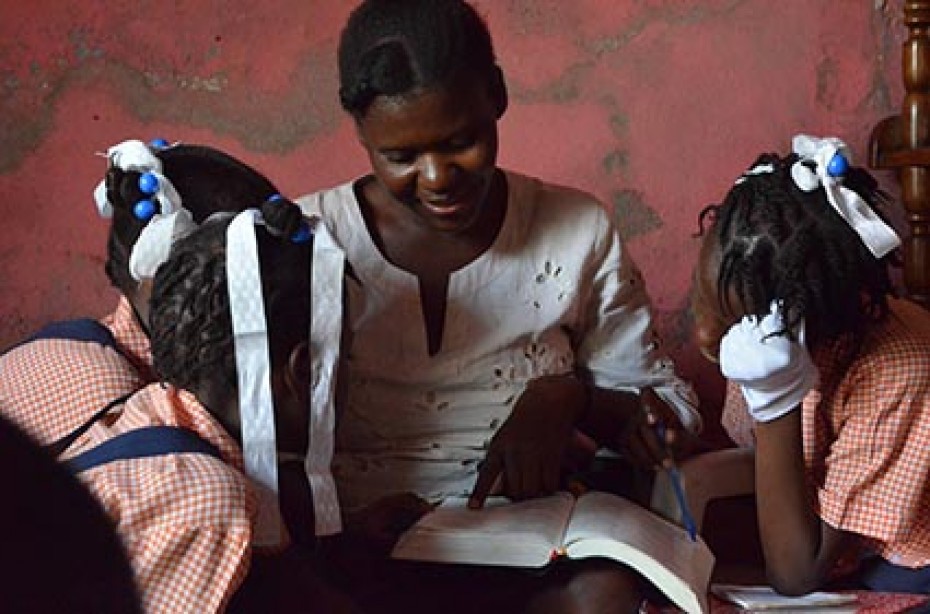
Julienne grew up with the belief that her ability to learn, her wisdom and her knowledge had all been drained by her twin sister who, on the other hand, always did well in school.
Continue Reading ›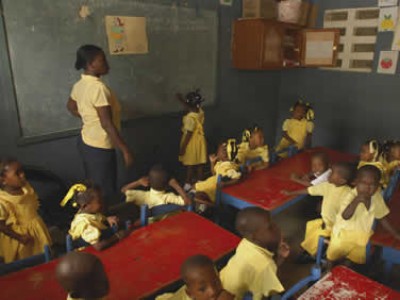
Child of Compassion
Ismene loved school. She loved learning how to work math problems. But Ismene was worried. Her grandparents might not make enough money to buy food and keep her in school.
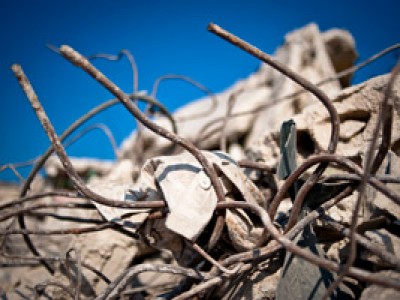
The World Will See
I believe there will be a day when the world looks back on this incident in Haiti and sees that God is still in control. God is still here. Download the free song, The World Will See.
Life in Haiti After the Earthquake: A Changed Perspective
Received from Ken Laura, a member of our Haiti Relief Team working in Port-au-Prince.
Sunday, April 25 — I moved last week and it has changed my situation and my perspective. Instead of sleeping in a tent beside the main road of Delmas listening to trucks roar up and down the street all night, I go to sleep seeing stars, and awaken to bird calls. Some of the birds are roosters, which start crowing at about 4:30, but other than that it is amazingly quiet here.
Whenever the power is out, usually from the morning until 10 p.m. there are very few lights in the area. Although the houses are a million dollars in size, they are only about $100,000 complete.
People do have mortgages here, but many build with the cash that they save from year to year and pay as they go. They don’t owe the bank interest, but they also have to wait a really long time to move into the house.
My new home is at the top of a steep hill in a very nice subdivision with a guard and pavement, mostly maintained. Some friends I’ve met are letting me stay as a courtesy.
Life in Haiti After the Earthquake: Weary but Resilient
This was written earlier in the week by Ken Laura, a member of our Haiti Relief Team. He has been in Port-au-Prince working with our Haitian staff since shortly after the earthquake.
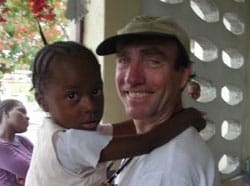 Five-thirty comes early most days, but especially on a Sunday morning when you hope to get some extra sleep before church. Not this week, however. I was wide awake at 5. I forced myself to stay in the sack for another 30 minutes despite the rooster’s consistent crowing.
Five-thirty comes early most days, but especially on a Sunday morning when you hope to get some extra sleep before church. Not this week, however. I was wide awake at 5. I forced myself to stay in the sack for another 30 minutes despite the rooster’s consistent crowing.
The high-pitched chirp of some baby doves asking for food and the soft cooing of their parents as they brought another tasty morsel to them brought back memories of 30 years ago when I was living in Limbe’ at the hospital where I worked. One of the other missionaries at that time was raising a pair of turtle doves for the eggs.
Calling my tent a sack is an exaggeration of for what I’ve been sleeping in the last three months. My tent living is nothing like what the vast majority of Port-au-Prince residents are living in at the moment.
As you’ve no doubt seen on the news, tent cities are all over town. More than 300 camps are registered in the city and more than 19 of them have 5,000-plus people living in them. The families are crammed together in muddy lots with only a sheet between them and the next family. Privacy is not a word in their vocabulary right now.
Helping Haiti: Our Food Kit Distribution Process
We continue to procure and deliver relief supplies through our staging area in Florida and our two supply warehouses in Haiti. We estimate that 1,000 emergency relief food kits are arriving in Haiti daily, some of which are donated by church partners in the Dominican Republic.
Food kits are put together in the Dominican Republic and delivered to our Port-au-Prince warehouse via large trucks. In high-risk areas, we use security assistance from the U.S. Army, though at times this draws unwanted attention. As food and relief supplies become more readily available, there will be less of a need for this.
Smaller vehicles from our Haitian church partners come to our Port-au-Prince warehouse to pick up the food kits.
Each food kit gives a family of five one meal a day for two weeks.
As Buildings Shook and Crumbled
Compassion Canada CEO Barry Slauenwhite and a group of fellow Canadians were met at the Port-au-Prince airport on Jan. 12 with an unexpected diplomatic reception. It lasted only 15 or 20 minutes, but it was long enough to possibly save their lives.
Barry was leading a weeklong vision trip for six Canadian pastors and their wives. Their home for the week was to be the Hotel Montana. But less than an hour after landing in Haiti, it became clear that this trip would take a very different turn.
Life in Haiti After the Earthquake: Living by Faith
Received from Scott Todd, our Senior Ministry Advisor, who is leading our medical team in Port-au-Prince.
Back at my sloping desk in the parking lot with my chair tottering over the pothole.
In some ways today (Jan. 28) was the most exhausting. Mainly the heat in our “clinic.” Once again, under tarps despite a respectable-looking church right next to us.
Our team used the church for sorting meds and eating lunch, and I hope that our occupying it might encourage the people to overcome the fear that the earth may shake it down at any moment.
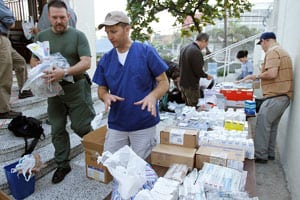
Treated over 100 people again today, but the conditions generally seem less severe in the city, where people are getting access to health services.
The story that will most trouble me as I try to sleep in the parking lot again tonight is the two very young children (approximately 2 and 3 years old) whose parents both died in the quake.
These young children are registered in our Child Survival Program. Their aunt came to take them and is caring for them.
I just learned an hour ago that their aunt is 15 years old and they are sleeping in the street under a makeshift tarp tent. It’s night now and I wonder how that 15-year-old girl is going to find any food for herself or for those little ones.
I’ve only shared about the kids and people we’ve been seeing, but I want to say something about our staff in Haiti.
It just isn’t possible to describe the emotional burden they carry. I spoke with Jozue (Joshua), who works for Compassion and is pastor of the church where we set up the mobile clinic today.
Jozue told me that on the day of the quake his wife was getting ready to wash their two little girls. Their water is outside, like a backyard spigot, and when mom went out to get the water one of the girls saw her go out and began to follow. Then the second one followed.
Mom saw the girls coming out of the house and said “Get back inside.”
But the girl said “No!”
“I said go back inside!”
But the girl stomped her foot and insisted, “No!”
Life in Haiti After the Earthquake
Received from Scott Todd, our Senior Ministry Advisor, who is leading our medical team in Port-au-Prince.
Last night’s (Jan. 25) arrival – in the dark, no lights in the airport, Humvees and Marines roaring around, bags thrown on the tarmac, smell of jet fuel, shouting, chaos, can’t find our pickup, pulling out over 30 duffel bags and boxes, driving through the chaos of Port-au-Prince with three of our guys on top of each pickup “guarding” baggage.
Touring our office at night with flashlights, framed mission statement on the wall tilted, leadership principles tilted, warning to walk clear of certain walls which are collapsing – pitch tent in parking lot, spray some DEET, take some Malarone, sweating from hauling stuff.
Today (Jan. 26), our medical team worked under tarps because the people are afraid to go inside buildings. Within an hour we were up and running and saw approximately 100 patients.
Each patient registered at entry through a gate with name, basic info including height, weight etc… and took a number. Some were triaged. Others waited to be called to one of four (sometimes five) stations. Each station had a doc, nurse and translator (though some of our Haitian nurses also served as translators).
The cases were not as severe as I expected with some very serious cuts and abrasions that were infected and needed dressing, some dislocations, a few bone issues. Many were just overwhelmed and needed someone to look at them and tell them they were okay. We prayed with some of them.
Looking Past Haiti’s Short-Term Needs
“First, I ask God to forgive me for my sins.”
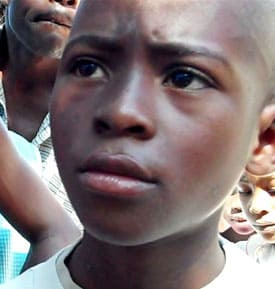 That’s the answer 12-year old Robinson gave me when I asked him what he’s praying for this week.
That’s the answer 12-year old Robinson gave me when I asked him what he’s praying for this week.
It might sound like a sweet prayer from a 12-year old, until you realize that Robinson is living with his family in a tent city in Port-au-Prince, Haiti. And the reason for his prayer is that Robinson, like many others here in this quake-damaged country, believes the terrible disaster is the result of sin.
And he feels ashamed.
He thinks God shook the earth to destroy his poverty-stricken city, killing thousands of people—all because he did something bad; he pushed another boy on the playground. It’s heartbreaking.
This is a great example of why the help we bring to Haiti has to go beyond food, water and medicine. Yes, those things are vital. And they need them now. But if we are going to look past the short-term, to the future of Haiti, our relief efforts must include a spiritual component. (more…)
It’s Not Natural
It’s not natural. It’s not even remotely right. No mother should have to bury her child.
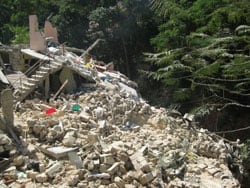 But Melicia is begging for the chance to do just that.
But Melicia is begging for the chance to do just that.
Her family was at home when the earthquake hit Port-au-Prince. In a panic, she gathered her children and rushed them toward the door. But her six-year old son Simon Peter got scared and ran the other direction, back into the house.
That’s when the cinder block construction gave way to the twisting and jolting. It collapsed. (more…)


